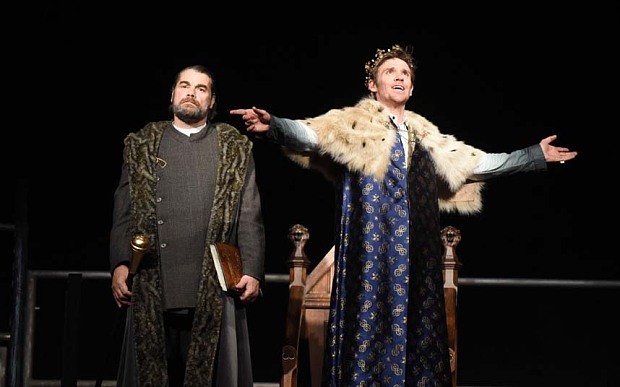You have no items in your cart. Want to get some nice things?
Go shopping
In a key moment in James I: The Key Will Keep the Lock, King James I of Scotland gives a long, powerful speech in defense, ultimately, of Scottish sovereignty:
England has pursued our wealth and bled our wealth for a hundred years or more and looks ready to do it for hundreds more until this is a nation of beggars. Then they’ll flick us a coin of our own stolen gold and call it charity.
They think I’ll help them in that work. They think that because in eighteen years they never knew what I was thinking. They never learned who I am.
I am the King of Scots. And they will get not one more penny that is yours!
When the play was performed at the National Theatre in London in autumn 2014, days before the Scottish Independence referendum, an audible murmur rose up from the crowd at these words. There was a palpable spark in the air. I couldn’t help but think that playwright Rona Munro would have been proud. For the play itself opens with a declaration of theatrical independence from the godfather of the history play: in swaggers King Henry V, a braggart and a bully about to die of dysentery. So long, Shakespeare. And the trilogy of plays that follows demonstrates the potent political power that lies in claiming one’s own history.
Since early 2016, The James Plays (as the trilogy in its entirety is called) have been on tour, largely in England and Scotland, but also as far afield as Australia and, most recently, Canada. At Toronto’s Luminato Festival, all three plays are being performed in the Hearn, a disused generating station converted into a performance space, where I had the opportunity to see the plays again, almost a year and a half after my first experience, and a continent away.
Though the plays have drawn continual comparisons to Game of Thrones (and in Canada, to Hamilton, which makes sense only if you think Lin-Manuel Miranda invented the history play), they are much more sharply political than the drearily cynical television show. The difference between seeing the plays in England and in Canada was most stark during the speech quoted above: gone was the sharp sense of immediate relevance, the tension in the air. But by removing the plays from the immediate political context, away from the independence referendum, broader connections were given room to breathe, and I found myself thinking more and more of the two other potentially historic votes we stand on the brink of, in the United Kingdom and in my own United States.
All three plays speak of a Scotland that, as one character says, doesn’t know who it is or what it wants. And so it finds itself looking, often resentfully, to its kings for definition. James I concludes his speech with the assertion that “I am Scotland”— but what is Scotland if he is an oathbreaker, a man with blood all over his hands? All three Stewart kings (and a few queens) come to learn that very often, peace can only be bought with violence; that even when a trustworthy or at least charismatic figurehead is raised up to stem the tide, lasting peace and prosperity cannot be founded on the back of one person – for what happens when they are gone? Perhaps a better method, the plays conclude by suggesting, is to look to history to find oneself. But the spectre of history is a double-edged sword for the Stewarts. The vicious deeds of past kings haunt their sons, and blood, as they say, will have blood. But there is hope, in the closing moments, of taking the good and learning from the bad. And this is the use the plays themselves hope to make of history, and their imperative that Scotland learn and own its past.
Munro’s vision of this past is much more inclusive than many. Though still unquestionably what Victor Hugo called “Great Man” history, focused on epic figures and royalty, it is at least a depiction of royalty that gives space to the contributions of women. The plays may be named after kings but their queens take at least an equal share of the action. One of my favourite sequences places onstage simultaneously a battlefield and childbed, elevating to equal importance the labour of kings and queens. Munro sensitively depicts the jarring conflict between duty and privilege that the kings experience, but she is no less nuanced and sympathetic in her rendering of the fear and sense of dislocation that comes with being a young, foreign queen. And the queens all are foreigners. Though this is a Scottish history, Munro revels in the foreign influence, the increasing importance of characters who are not born Scottish, but adopt the country, bring it into their hearts and give back more than some of its native sons do.
But back to Canada, where the most dramatic audience reactions were elicited by moments of interpersonal conflict, which are rich and deep enough to allow the play to exist perfectly comfortably in a space where its political edge felt particularly dulled. But that relative lack of immediate resonance allowed me to hear more clearly what they plays had to say about nations, about nationalism, about countries struggling to define themselves and the leaders who, for good or ill, will guide them to it, and made me long to see these plays in the UK again, or in the USA. Rona Munro may be forcefully, and beautifully, claiming Scotland’s history for itself, but it still has plenty to say to the rest of us.





